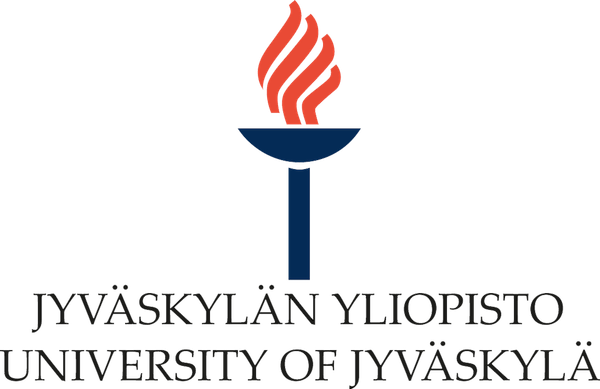The 16th SIEF congress was held at Brno, Czech Republic 7.-10.6.2023 with a theme “Uncertainty” and with almost 900 attendees from all over the world. The SENSOMEMO team was happy to visit the city of Brno for the first time and attend the congress with multiple panels addressing topics very close to our interests. Here we introduce our own contributions and some examples of presentations that gave us food for though.
Approaches to everyday materiality and affects
Both materiality and affect were discussed in various panels, workshops and in the plenaries. One visible aspect in the current research of materiality is the post-humanistic approach that analyzes the entanglements of human, and other than human that can be elements of nature such as rocks, plants, bacteria, climate or materials and technology such as machines, build environment and architecture (see the conference program, e.g. panels/workshops Post01, Post07, Digi04, Envi02). Many panels also addressed materiality and affects connected to home.
Two particularly interesting viewpoints to material culture from the SENSOMEMO perspective were presented in the panel Arc01: Back to Basics: Reconfiguring Place in Times of Crisis. First Tenno Taidearu (University of Tartu and Estonian National Museum) introduced an ethnography of a workshop “Paranduskelder”, a public workshop and a repair movement of everyday material things in Estonia. Participants and activists of the movement wish to popularize crafting skills and abilities to repair broken things to reduce consumption, which is action against the unsustainable consuming culture. The activists see a connection between repair skills and a more sustainable future. Second, Sara Bäckström (Umeå University) introduced her PhD-project, in which she scrutinizes the phenomenon of buying, renovating, and saving deserted houses in Sweden. She discussed how these renovating projects and houses are represented in social media, and how this phenomenon connects with dreams of a traditional, sustainable, and safe way of living.
These papers showed how emotions and affect can connect with materiality of everyday life, and how materiality and affect are in constant interaction. The feelings of insecurity and sadness about unsustainable and uncertain future call for action. An increasing number of people want to do something concrete and affect their everyday material environment. The objects and material things of everyday life create meaning and can even work as a statement for a better future. Materiality affects emotional states and plays a central role in creating both material and emotional wellbeing.
SENSOMEMO contributions
SENSOMEMO’s PI Eerika Koskinen-Koivisto was one of the speakers of the second conference plenary “Methodological uncertainty” which addressed methodological questions and potential of emerging methodologies to tackle different cultural phenomena. The speakers reflected ethnological research methods which they consider the best when people are experiencing, imagining, or narrating their everyday lives in times of uncertainty. They were also asked to reflect how do they personally engage with communities and individuals through research methods. Eerika discussed how the ethnographic research methods allow the researchers to engage with people in their everyday environments, such as home, and to reach other modes of knowledge than language-based and verbalized modes, namely affective and embodied dimensions of knowledge that can be approached e.g. through sensory ethnography. She also brought up the need for hands-on methods and participatory experiments or interventions that call people to participate not only in production of research material but also making sense of everyday life cultural practices. She introduced the affect cards workshops as an example of tactile and shared concept work (more about affect cards workshops in Finnish).
Methodological approaches were also discussed in many panels, including in Body03: Mediating affect in the world of uncertainties. Anna Kajander focused on an ethical and methodological issues in the context of recent SENSOMEMO interviews in our respondent’s homes. She asked how to approach a respondent’s narrative and analyze an interview which seems to be in contradiction with the researcher’s own perceptions and observations. Can we “disagree” with our respondent’s ideas of their own homes and material objects, and how should we deal with the contradiction between verbalized narrative and what we see and feel? As ethnographers our ethical standing point is to show respect and empathy towards our respondents, and yet we also need to be able to analyze our research materials in a way we see appropriate. Ways to deal with such uncertain situations are included in the practices of ethnography: careful reflexive analysis and understanding of researcher’s own perceptions and interpretations, awareness of the need to challenge the narrative of the respondent and a respectful manner of writing.
A way forward
Eerika Koskinen-Koivisto led, together with Matilda Marshall (Umeå University), an experimental workshop ENVI02: Sensing and materializing climate change. The workshop was a hands-on experiment to explore climate change through sensory and material approaches. The participants were asked to bring along an object that is affected by, captures, or signifies climate change from the participant’s own research or living environment. In the workshop they explored the objects indoors and outdoors and shared their perceptions, but also sensory memories and personal experiences related to them. The participants also engaged in writing about the objects. The goal of the workshop was to continue the joint writing and conceptualization of the material and sensory experiences related to the complex effects of climate change in the everyday life. The group is working on a joint photo essay on the objects brought to the workshop and will continue the same path of methodological experiments and joint knowledge production in the future. Perhaps the next SIEF congress in Romania 2025 will include more of experimental sessions instead of traditional panels.
Writers: Eerika Koskinen-Koivisto & Anna Kajander



